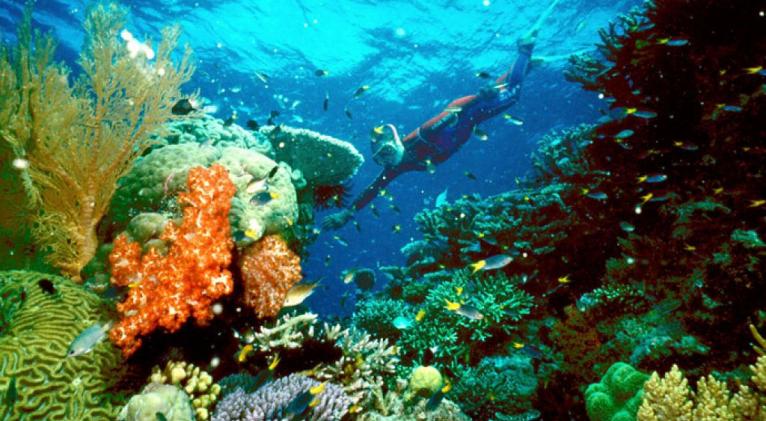Great Barrier Reef in 'worst state since records began', scientists say
especiales

A senate committee heard from scientists from the Australian Coral Reef Society and the University of Queensland, who gave evidence before the first hearing of the inquiry in Brisbane, Queensland, on Monday, reports the Australian Associated Press.
They are investigating how the Australian and Queensland governments have been managing the reef, and will decide with UNESCO next year if it should be listed as a world heritage site in danger.
What the scientists told the inquiry was damning. The reef is no longer rejuvenating as it once did and is facing new threats from farm runoff, poor water quality, a Liquefied Natural Gas facility on Curtiss Island and a massive dredging project to enlarge the port at Abbott Point.
The Australian Coral Reef Society – the oldest organization in the world that studies coral reefs – also said coral cover has halved since the 1980s, when the reef was listed as a world heritage asset.
Peter Mumby, the president of the Australian Coral Reef Society, said that by 2050 there would be seaweed and algae where there were once complex coral structures, as well as fewer fish.
“It will be pretty ugly. And the ability to earn a livelihood will be vastly diminished. The reef is in the worst state it’s ever been since records began,” he said.
Further compounding the problem was the fact that funding for the Great Barrier Reef Marine Park Authority had been cut and the Commonwealth is also set to devolve all environmental approval powers to individual states, meaning that plans for big projects would only be given a hearing once.
Ove Hoegh-Guldberg, the director of the Global Change Institute at the University of Queensland, said much more needs to be done to protect the reef.
“The threats are escalating. It is time for a rethink. We are living in a fantasy land,” he told the committee.
He also lamented the handing over of the environmental approval processes to the government in Queensland.
“The original establishment of the marine park authority was due to a need to take it out of the state level. This is an ecosystem that is owned to some extent by the world. It seems at every turn that we are trying to prove that we don't care about that commitment made in 1981 (when the reef was World Heritage-listed)," he said.
The hearing also heard from parties representing industry and commerce who played down the dangers to the reef.
As part of the Abbot Point port expansion, up to three million cubic meters of sand and silt will be dredged and then dumped offshore inside the Great Barrier Reef marine park, albeit about 40 km from the nearest reef.
David Anderson, chief executive of Ports Australia, insisted that offshore dumping was better for the environment than dumping the spoil on land.
“We have been working with departments to ensure the World Heritage Committee is provided with the most robust scientific information. The sediment impacts of dredging are minor in comparison to those from river discharges and cyclones,” he said.
While Michael Roche, the chief executive of the Queensland Resources Council, also insisted that dredging would not affect the long term health of the reef and that its effects were localized and temporary.
“Dredging is required to keep ports open and to expand. It creates shipping channels, which is an important part of our economic infrastructure as our railways and roads are. We are asking the [Senate] committee to focus on the real facts and the real science and not be distracted by a lot of the emotive campaigns against the resources sector," he said.
But the committee questioned the size of the Abbott Point port extension, which could have been reduced by transferring minerals to ships based much further offshore. But this option was ignored.
They also raised the aspiration of the Queensland government to increase agriculture in the far north of the state. The watershed around Cape York is currently undeveloped and this is one of the main reasons why the adjacent coral reefs are in a good condition.













Add new comment